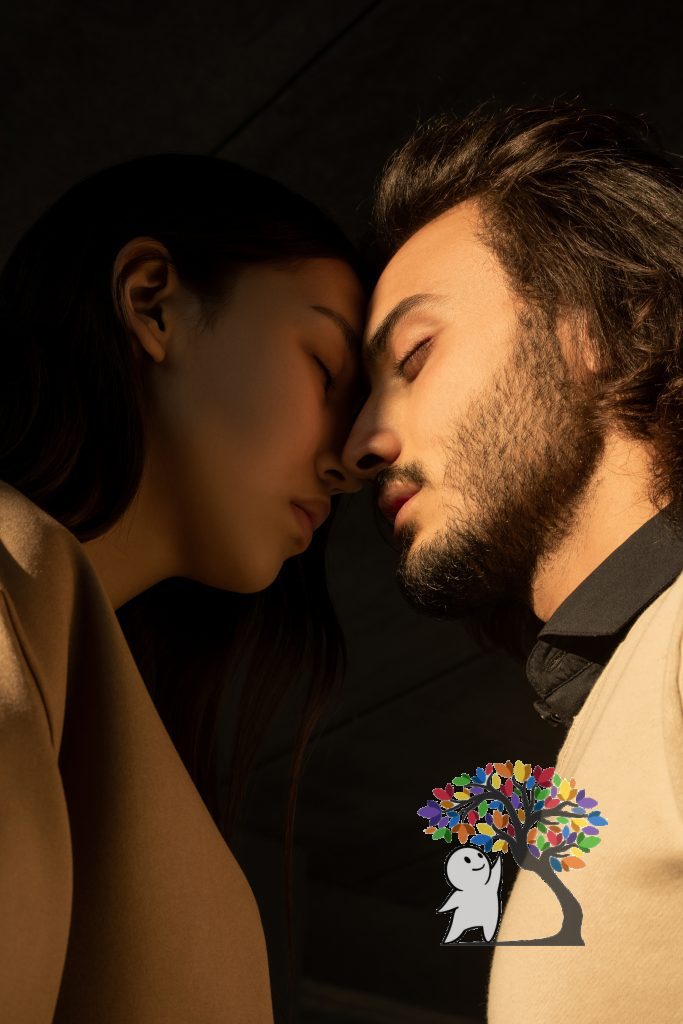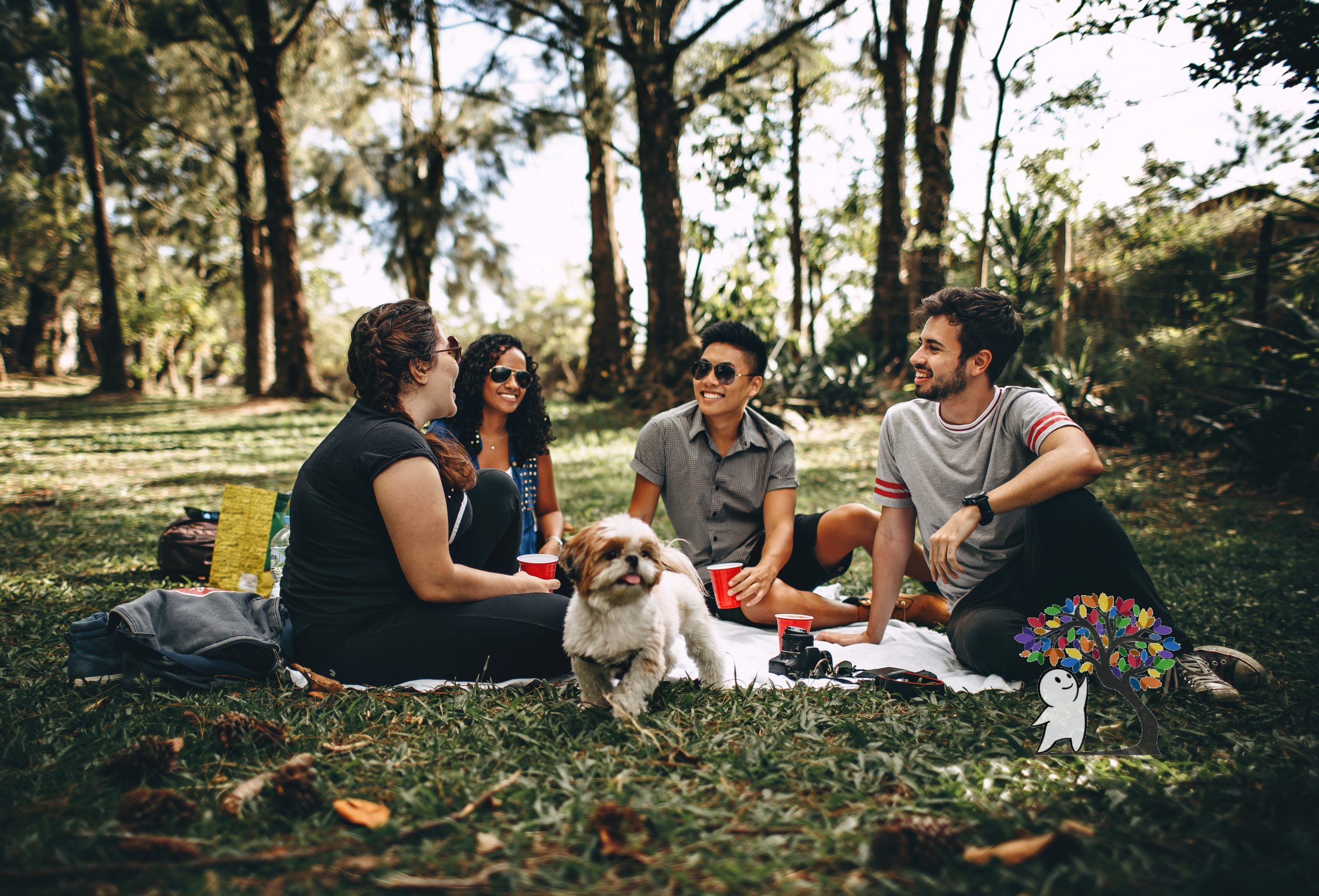6 Behaviors That Make Someone Chase You, Backed by Psychological Research

Psychologists and researchers have long been developing studies to find out what exactly it is that makes someone attractive.
Think about it. What are the questions you might ask yourself when you ponder on what attracts a possible partner?
Do good looks make someone initially attractive? Odds are yes.
Does confidence make one attractive? Everyone loves someone who loves themselves – as long as they’re not too ‘self-obsessed’.
What about a pleasant voice and positive attitude? Sure! Why not?
But not all of these are things you can control.
Can you feel attractive and beautiful? Absolutely! Can you gain confidence from achieving goals and improving yourself? Sure can! Can you develop a positive attitude, feeling, and in turn sound happier? Yes, yes, and yes.
While these are goals anyone would want to achieve, – indeed they are attractive qualities, as we desire them for ourselves – what about the little habits we can develop that will make us more attractive? Behaviors that can make a potential partner admire you so much they’re willing to chase after you? – In a non-creepy way of course.
Idioms here people!
Here are six behaviors that will make someone ‘chase you’, backed by psychological research.
1. Compliment Others, and In Turn, People Will Associate Those Compliments With You

Have you ever heard someone speak so highly and kindly of another at a party, and admired them for doing so? You may even have thought they were kind because of the way they spoke kindly of others. See where I’m going with this?
When we speak of others in a positive light, people will associate the traits we use to describe that person, with ourselves. This happens when we talk about someone to someone else.
This is called spontaneous trait transference, and it occurs when “communicators are perceived as possessing the very traits they describe in others” (J J Skowronski, D E Carlston, L Mae, M T Crawford).
According to several studies published in the Journal of Personality and Social Psychology, researchers found that when we describe someone with a certain trait to another person, that person will associate us with the trait described.
So if you have kind words to say about your best friend Stacey to your crush Paul: “she’s so energetic, fun, and lovely!” you may say. Then Paul may start thinking that you happen to be energetic, fun, and lovely yourself.
Ah Stacey, you can be a wingwoman even if you aren’t there… – or don’t exist, (raises eyebrows).
2. Spend More Time Around the Person You Have a Crush On

The ‘mere exposure effect’ can be a very useful way to get someone to like you. Now, hang on there buddy, put your clothes back on. The title doesn’t mean you should expose yourself in that way.
According to the psychological study by R.B. Zajonc, the mere exposure effect is a psychological phenomenon in which people find themselves preferring someone or something simply because they developed familiarity with them.
When a person is repeatedly exposed to a certain stimuli, that person develops familiarity with the stimuli and therefore prefers it’s presence. This is why certain products in ads are constantly being repeated during your favorite programming’s commercial breaks. The more familiar you are with something, the more you’ll start to notice it.
If you have a chance to hang out with your crush casually first before you make a move, they may just find they prefer your company.
Next time you ask them out on a date? They may just say yes.
Why?
Just like a repeated McDonald’s ad, the more you see it, the more you find you may be developing a craving and find yourself, consequentially, lovin’ it.
3. Play Copycat and Mimic Your Partner

Find yourself subconsciously mimicking the gestures and movements of the person you’re talking to? Keep doing it! This instance is called the ‘chameleon effect’ and was explored in further studies.
People like people like themselves! Boy, that was a tongue twister.
If you subtly mirror your partner when you interact with them, they may find there’s something about you they like – themselves!
4. Say Their Name Often to Grab Their Attention

Ever noticed how, as a child, teachers would often say your name in the middle of teaching or lecturing you on a subject? That’s because when we hear our own name, it grabs our attention and pulls us back to reality. School teachers don’t want their students to be distracted, so they say their students names to bring them back to the discussion at hand.
Same goes for making someone notice you. While in conversation with someone you admire, try saying their name often and at the beginning and/or end of questions. This will grab their attention and also add a bit of charisma to your normal conversations.
We love our names so much, that we can even pinpoint our own names being spoken by someone in a loud crowd or party. This form of selective attention is related to the ‘cocktail party effect’. While in a crowded or loud room, we can hone in on a specific conversation of our choosing. More importantly, if our name is spoken nearby – even when we are focused on another conversation – we immediately perk up and recognize that someone is talking about us.
It’s as if our brain can filter out the loud noises of others at a party so we can focus on the person who is talking to us. But when our name is spoken close by, it’s as if a signal is sent to our brain to notify us: someone’s talking about you!
You don’t want to become white noise that’s filtered out at a party. People love it when they think others are interested in them and their thoughts. Saying another’s name notifies the person you care enough to see what they think and gain their attention.
So next time you are at a cocktail party, it wouldn’t hurt to throw in your crush’s name at the end of your question to them and gain their admiration in the process. Not only will they like you more, but you’ll come across as charismatic in doing so!
5. Come Across as Capable and Intelligent, But Still Human

People love others who are smart and reliable. Most people tend to look for a partner that is not only attractive, but intelligent and capable. And intelligence is attractive!
But people may tend to find others who are near ‘perfect’, as distant and unattainable.
In my previous article, “5 Signs You’re More Likeable Than You Think! (And Tips to Help You If You’re Not)”, I talk about this theory in depth and the study that found people admire someone who is intelligent but who also show their imperfections as well.
A researcher from the University of Texas found that if you make some mistakes but still show that you are a capable and intelligent person, it may make others see you as more attractive.
In the study, researcher Elliot Aronson had people rate fake ‘test-takers’ based on their attractiveness. Test-takers would either do great on a test, mediocre, or poor.
The imperfection? Some test-takers would act clumsy and spill coffee at the end of the interview, after their scores were revealed.
People rated the test-takers who spilled coffee at the end of their interview the highest on the attractiveness scale.
Meaning, people want to see you are intelligent and capable, but that you aren’t perfect.
As the research paper states: “a superior person may be viewed as superhuman and, therefore, distant; a blunder tends to humanize him and, consequently, increases his attractiveness.”
Poor test takers, mediocre test-takers, and even great test-takers were still rated lower than the superior test-taker who scored great and spilled coffee at the end. Others may be intimidated if you come across as perfect and make no mistakes. They want to see your human side.
But when you show you are capable and yet still relatable as a human being who makes mistakes, people tend to like you more.
So next time you give off a great first impression and show you are intelligent and capable, don’t think you have to be ‘perfect’, little imperfections – and even being a little clumsy – can be attractive along with your strengths.
6. Be Around a Group of Friends

Research shows that people tend to find others more attractive when they are in groups than on their own. This idea is called the ‘cheerleader effect’ and has been proven through tests by psychologists to be consistent.
Researchers Edward Vul and Drew Walker of the University of California, San Diego conducted five experiments where subjects would rate people based on photographs of them.
They found that subjects rated people more attractive when they where pictured in a group of the same gender compared to an individual photograph of someone pictured alone.
As the study suggests: “individual faces will seem more attractive when presented in a group because they will appear more similar to the average group face, which is more attractive than group members’ individual faces.”
So if you see a cute individual at a bar or dinner party, it might be worth it to get him to notice you first while you’re chatting with your group of friends, – enter hypothetical wingwoman Stacey! If you catch your crush’s eye, they may just find themselves chasing after you.
So there are the six behaviors that will likely draw any partner your way – well, I mean, according to science. Your ideal match may have weird preferences, and you may not have a wingwoman by your side to make you look more attractive. But hey, with psychological research on your side to back you up, who needs Stacey anyway?
Written by Michal Mitchell
Follow me on Instagram and Twitter at @jackycoocoo for more articles, celebrity interviews, original poetry and more.
References
- Skowronski, J. J., Carlston, D. E., Mae, L., & Crawford, M. T. (1998). Spontaneous trait transference: communicators taken on the qualities they describe in others. Journal of personality and social psychology, 74(4), 837–848. https://doi.org/10.1037//0022-3514.74.4.837
- Zajonc, R. B. (2001). Mere Exposure: A Gateway to the Subliminal. Current Directions in Psychological Science, 10(6), 224–228. https://doi.org/10.1111/1467-8721.00154
- Chartrand, T. L., & Bargh, J. A. (1999). The chameleon effect: the perception-behavior link and social interaction. Journal of personality and social psychology, 76(6), 893–910. https://doi.org/10.1037//0022-3514.76.6.893
- “Cocktail Party Effect.” Psychology Wiki, psychology.wikia.org/wiki/Cocktail_party_effect.
- Aronson, E., Willerman, B., & Floyd, J. (1966). The effect of a pratfall on increasing interpersonal attractiveness. Psychonomic Science, 4(6), 227–228. https://doi.org/10.3758/BF03342263
- Walker, D., & Vul, E. (2014). Hierarchical Encoding Makes Individuals in a Group Seem More Attractive. Psychological Science, 25(1), 230–235. https://doi.org/10.1177/0956797613497969


Responses